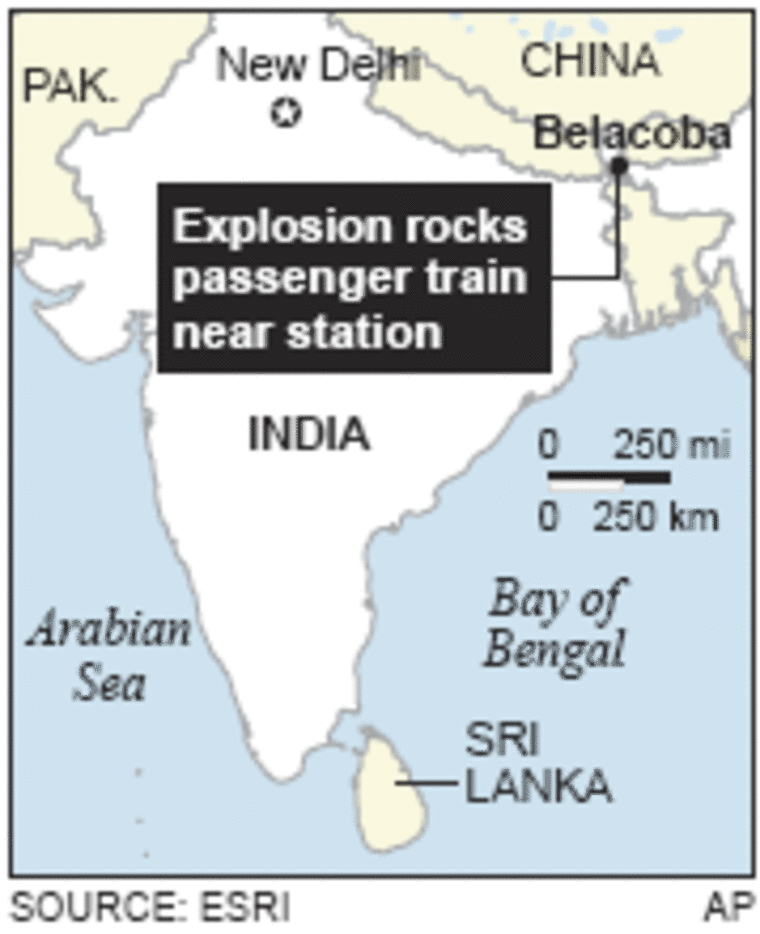A bomb exploded and tore through two cars of a passenger train Monday in a remote area of eastern India, killing at least eight people and wounding about 60 others, officials and Indian media said.
Suspicion for the blast in West Bengal state quickly fell on two groups: communist rebels active in wide swaths of rural India or militants fighting for an independent homeland in the neighboring state of Assam.
A spokesman for Northeastern Railways, T. Rabha, told The Associated Press that the bomb had been planted in one of train’s cars and exploded about 6:20 p.m. near the Belacoba station, about 345 miles north of Calcutta.
The blast was so powerful it blew away the side and roof of one of the cars, the Press Trust of India reported.
At least six passengers died at the scene and 53 others were wounded, Rabha said, adding that the death toll could rise because some of those injured were in serious condition. PTI, citing railway police official Tushar Bhattacharya, later reported that the death toll had climbed to eight with about 60 wounded.
Witnesses said there was a flash followed by a deafening explosion. There were two small explosions immediately afterward, PTI reported.
“Some of the passengers jumped out of the coach in panic, while many received burns,” PTI quoted witnesses as saying.
Bombers remain unknown
Prasad Ranjan Roy, Home Secretary of West Bengal state, said initial suspicion pointed to either Maoist rebels or Assamese militants. He suggested the blast could be the work of the relatively small Kamtapur Liberation Organization, an Assamese group tied to the larger United Liberation Front of Asom.
But, he cautioned: “We are trying to get details.”

Although the Maoists are active in the area, they rarely attack civilians.
The Assamese separatists, in contrast, do target civilians and have intensified their attacks since the federal government ended a temporary six-week cease-fire on Sept. 24 amid deadlocked peace talks.
The insurgents have been fighting since 1979 for Assam’s independence, saying India’s central government — 1,000 miles to the west — exploits the northeast’s rich natural resources while doing little to improve its poor infrastructure or to alleviate widespread unemployment.
They have been known to plant bombs in cities and towns, attack police and military posts, and blow up oil pipelines. At least 10,000 people, most of them civilians, have died in Assam since the insurgency began.
Apart from the rebellions in Assam, dozens of other insurgencies have festered for years across India’s six other northeastern states. Nearly all are fighting for autonomy or independent homelands for the region’s indigenous peoples, most of them ethnically closer to Burma and China than to the rest of India.
Mumbai’s train network was targeted July 11 when seven bombs exploded on crowded commuter trains, killing more than 200 people. Thirteen men have been arrested in the bombings. Police suspect the bombs were planted in overhead luggage racks inside the coaches.
Maoist groups are active in the area, but they rarely target civilians.